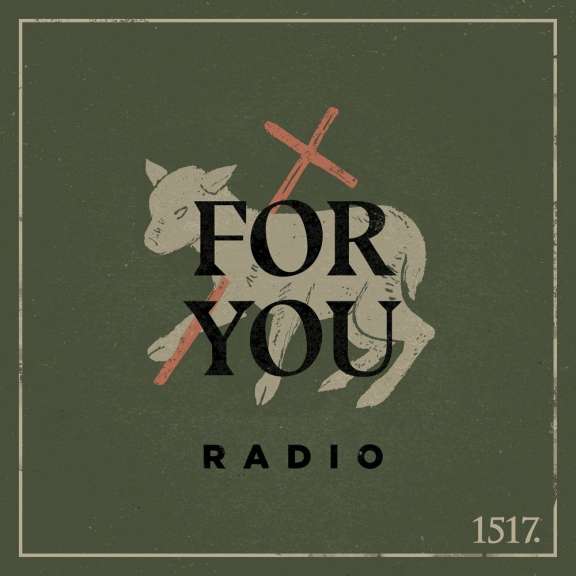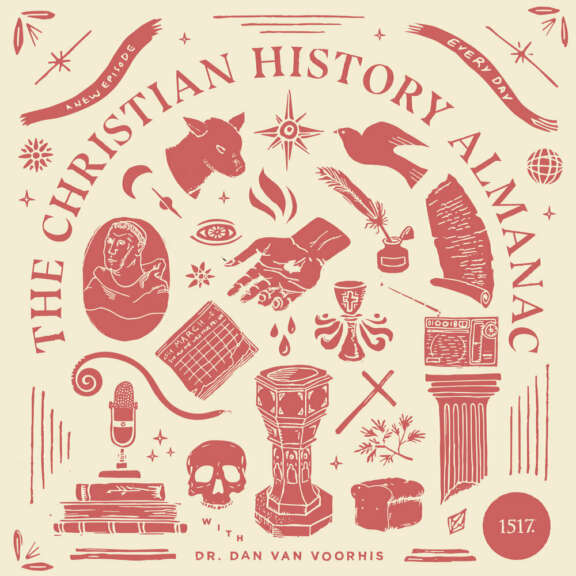Don't glue boards together and don't drink the Kool-Aid. Craig and Troy describe why both of those make for bad Christological heresies. We trust in the true Christ who is fully God and fully man, given for us.
Podcasts
Each 1517 Podcast is dedicated to delivering Christ-centered content through weekly, monthly, and seasonal audio platforms. Listen online or on your favorite podcasting app.
Author
- All Authors
- Aaron Zimmerman
- Adam Francisco
- Amy Mantravadi
- Blake Flattley
- Bob Hiller
- Bradley Gray
- Brian W. Thomas
- Bror Erickson
- Bruce Hillman
- Caleb Keith
- Chad Bird
- Chris Rosebrough
- Christopher Gillespie
- Cindy Koch
- Craig Donofrio
- Dan van Voorhis
- Daniel Deen
- Daniel Emery Price
- Darrin Sheek
- David Andersen
- David Rufner
- David Zahl
- Debi Winrich
- Delwyn Campbell
- Donavon Riley
- Doug Klembara
- Edward Killian
- Elyse Fitzpatrick
- Erick Sorensen
- Flame
- Grant Klembara
- Gretchen Ronnevik
- Haroldo Camacho
- Jacob Smith
- Jared C. Wilson
- Jeff Mallinson
- Jeffrey Pulse
- Jessica Thompson
- Jim Nestingen
- Joel Fitzpatrick
- Joel Hess
- John Andrew Schreiner
- John Bombaro
- John T. Pless
- John W. Hoyum
- John Warwick Montgomery
- Katie Koplin
- Kelsi Klembara
- Ken Sundet Jones
- Magnus Persson
- Matt Popovits
- Michael Berg
- Michael Horton
- Nick Lannon
- Paul Koch
- Peter Nafzger
- Philip Bartelt
- Raleigh Sadler
- RJ Grunewald
- Robert Kolb
- Rod Rosenbladt
- Ron Hodel
- Sam Leanza Ortiz
- Sarah Condon
- Sarah Crowder
- Scott Davis
- Scott Keith
- Steven Paulson
- Tanner Olson
- Troy Neujahr
- Uwe Siemon-Netto
- Wade Johnston
- William Cwirla
-
The year was 1201. We remember Robert of Sorbonne. The reading is a paraphrase of Francis of Assisi from "All Creatures of Our God and King."
-
The year was 1927. We remember missionary and martyr Phillip James, or “Jim” Elliot. The reading is an excerpt from chapter 11 of the Epistle to the Hebrews.
-
The year was 1796. We remember the pastor and philosopher Thomas Reid. The reading is an excerpt from Eugene Peterson's "A Long Obedience in the Same Direction."
-
The year was 1919. We remember Baron Paul Nicolay, the Lutheran evangelist in Russia. Our reading is from Russian dissident Aleksandr Solzhenitsyn, titled "Confession."
-
The year was 1695. We remember the Reverend John Glas. The reading is "Sing Hosanna" by Glas.
-
The year was 1965, and Pope Paul VI became the first Pope to travel to the Western Hemisphere. The reading is from Karol Jozef Wojtyla, his “Meditations on the Book of Genesis: at the Threshold of the Sistine Chapel."
-
The year was 1943. We remember Danish Lutheran pastor Kjeldgaard Jensen. The reading is from Dietrich Bonhoeffer, his "Meditations on the Cross."
-
God the Father, God the Space Ghost, and God the Holy Ghost? That doesn't seem right. How about, God the Father, God the Created Son, and . . . no, that's not right either. Craig and Troy look at some more Christoogical heresies that try to understand Jesus, but miss the mark.
-
The year was 1800. We remember Nat Turner. The reading is from the Epistle of St. Paul to the Ephesians chapter three, verse twenty-five.
-
Forget prayer, America needs the use of logic and civilized discourse! So do preachers. What if preachers actually honestly engage the culture instead of cry “martyr”? Ringside meets The Craft of Preaching with special guest Dr. Ben Haupt.
-
The year was 1567. We remember a few stories filled with court intrigue, suspicion, and murder, as well as Pietro Carnesecchi, a humanist and would-be Reformer. The reading is “The World is not Conclusion” by Emily Dickinson.

